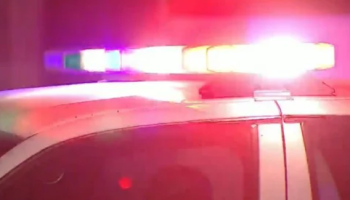WASHINGTON — The For The People Act (S1) is in the hands of the Senate, who opened up the floor for debate on the bill Wednesday evening.
Sen. Todd Young took advantage of the time to berate congressional Democrats for pushing the bill, which he says is an effort to reform America’s voting system in order to help themselves stay in control of Congress.
“This legislation takes a system that is actually working quite well and applies drastic and draconian and desperate elections reforms meant to keep Democrats in power,” Young said on the Senate floor. “In the history of our country, voting has never been easier than it is right now.”
Prominent Democrats are pushing the reforms in order to expand access to voting by placing more authority over the election process on the federal level.
One way they plan to do that in the bill is by outlawing voter ID laws, such as a law in Indiana that requires voters to present a photo ID at the ballot box on Election Day.
“National Democrats want to gut popular voter ID laws like in the state of Indiana,” Young said. “I know what Hoosiers believe. Hoosier believe you should have to prove who you are in order to vote. This For The People Act says ‘no, you don’t have to prove who you are. We’ll just take you at your word’.”
Finally, Young took issue with a provision in the bill that would give election candidates for Congress access to public money for their campaigns. Democrats are trying to reduce the influence of PACs in funding election campaigns. In order to do that the bill would allow the federal government to provide a 600% match on campaign donations of $200 or less.
“Democrats want to fund their campaigns with your taxpayer dollars,” said Young. “That’s right. Under the For The People Act, a $100 campaign donation to Nancy Pelosi, could be matched by $600 from taxpayers.”
Candidates would only be eligible for the donation match if they have raised at least $50,000 in “small-dollar donations” from at least 1,000 donors.
It’s not clear when the Senate could vote on the bill.













